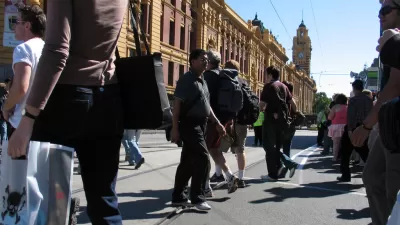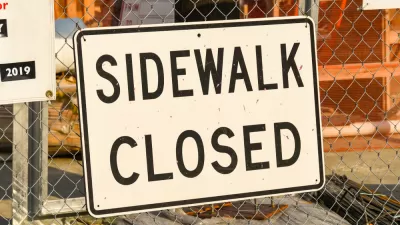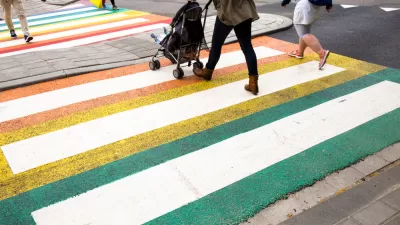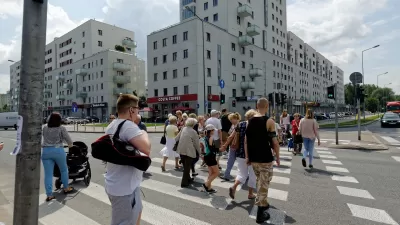A post on Ars Technica digs into the complicated world of pedestrian modeling and identifies a culprit in the problems with existing models: indecisive people.

Chris Lee introduces the research of Alessandro Corbetta, from the Technical University of Eindhoven, into the difficulties of creating reliable models for pedestrian behavior.
The problem:
Unfortunately, pedestrian models are not very well tested against data. Most experiments involve paying university students to walk along corridors and through doors under highly artificial conditions. In part, this is because it has been very difficult to obtain data from natural settings, where you need to track individual pedestrians as they walk through some area of interest.
The solution:
Corbetta set [Kinect] cameras up in two locations: the main thoroughfare at Eindhoven train station and a link corridor between one of the university buildings and the nearest cafeteria. From there, he recorded data for a year.
Corbetta's findings after crunching the quarter of a million trajectories he discovered during the experiment revealed some of the behavior that makes pedestrian modeling so difficult. Namely, that some people change their minds en route, and turn around. The article goes into more detail about how Corbetta accounted for their indecision for the ongoing project of building reliable pedestrian models.
FULL STORY: Models of pedestrian flow stumble because people change their minds

Planetizen Federal Action Tracker
A weekly monitor of how Trump’s orders and actions are impacting planners and planning in America.

San Francisco's School District Spent $105M To Build Affordable Housing for Teachers — And That's Just the Beginning
SFUSD joins a growing list of school districts using their land holdings to address housing affordability challenges faced by their own employees.

The Tiny, Adorable $7,000 Car Turning Japan Onto EVs
The single seat Mibot charges from a regular plug as quickly as an iPad, and is about half the price of an average EV.

Seattle's Plan for Adopting Driverless Cars
Equity, safety, accessibility and affordability are front of mind as the city prepares for robotaxis and other autonomous vehicles.

As Trump Phases Out FEMA, Is It Time to Flee the Floodplains?
With less federal funding available for disaster relief efforts, the need to relocate at-risk communities is more urgent than ever.

With Protected Lanes, 460% More People Commute by Bike
For those needing more ammo, more data proving what we already knew is here.
Urban Design for Planners 1: Software Tools
This six-course series explores essential urban design concepts using open source software and equips planners with the tools they need to participate fully in the urban design process.
Planning for Universal Design
Learn the tools for implementing Universal Design in planning regulations.
Smith Gee Studio
City of Charlotte
City of Camden Redevelopment Agency
City of Astoria
Transportation Research & Education Center (TREC) at Portland State University
US High Speed Rail Association
City of Camden Redevelopment Agency
Municipality of Princeton (NJ)





























